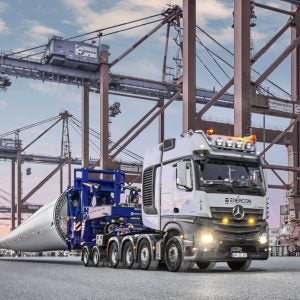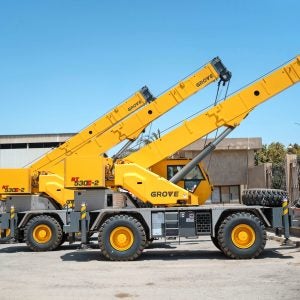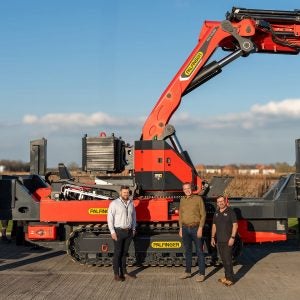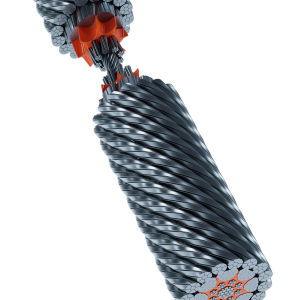Snavely, and Kurt Goddard, manager of financial planning and analysis, discussed Terex’s financial health and forward strategy in a conference call hosted by Banc of America Securities.
Snavely noted that the group’s best performing sectors in the mid-cycle include aerial work platforms and heavy construction equipment. Crane sales feature most heavily in the late cycle, he said.
(In the late-cycle, contraction, stage, the general economy becomes more challenging, and favours established businesses over speculative investment: but often only in as much as established businesses suffer less compared to new businesses.)
In Europe, Snavely said, the economy is ‘more at the middle of the mid-cycle’: that is, further away from contraction than North America. If the sales trends he identified hold out, North America should be closer than Europe towards the peak of crane sales.
Snavely went on to consider the differences for Terex between the current economic cycle and previous ones. He said, “First of all, there’s substantial EU expansion into Eastern Europe. And those EU entrants are adopting Western safety standards, labour costs are rising, and this drives demand for Terex equipment. For instance, a reasonable amount of the growth in aerial work platforms for us in Eastern Europe is driven by higher safety standard requirements.
“There are petro-dollars that are funding capacity expansions in the Middle East, in Russia, in the Canadian Tar Sands. And this drives not only the mining business for us, for instance, but also the cranes business, where a lot of the use for cranes is in the petro-chemical industry as people build and repair refineries.
“And finally, improving living standards in the developing economies is driving infrastructure demand. People want what we have in the developed world.”
Responding to audience questions, Snavely went on to discuss the company’s business in these emerging markets: “We’re pushing as hard as we can to participate in those markets and to try to become a local supplier where we can. Some places, that is very difficult. Russia is a tough place to do business, and we’re trying to figure out how to do it effectively.
“There are some crane manufacturers in Russia. But, the higher technology cranes tend to come from Europe and the United States—people like Liebherr, Manitowoc and Terex—we bring technology.”
In China, Snavely told the audience, “On the small end, the lower end, they are building some of their own cranes. But, again, the higher end, the higher technology cranes are being imported.
“We bought half of a company that makes mobile cranes in China. China is one of those markets where there are some things that we can own 100% of. So, if it’s a stationary crane, we can own 100% of that company. But, for mobile cranes, things that can go on the highway, we can only own a 50% stake of those companies, by government regulation. So, our approach to the market depends on what we’re allowed to own.”
An audience member asked the Terex finance experts how the end of Olympic 2008 construction in Beijng would affect demand for cranes, pointing out that some analysts are predicting this will mark the start of a general downturn. Snavely said, “We read the same publications you do, and I think that’s something that we’re worried about. I mean, there is a tremendous boom because there is a lot of infrastructure development and there’s a lot of pent-up activity. But, we certainly hope that the Olympics don’t spell the end of that. We think that that will continue beyond the Olympics.”
Goddard added, “The China opportunity does seem much larger than just the Olympics. And then, if you are concerned about that, well, then you think 2012 and London, and then you’d start to get demand there.”






